
The Philippine Assembly was the lower house of the Philippine Legislature from 1907 to 1916, when it was renamed the House of Representatives of the Philippines. The Philippine Assembly was the first national legislative body fully chosen by elections.

Miguel "Mike" Pamintuan de Leon is a Filipino film director, cinematographer, scriptwriter and film producer.
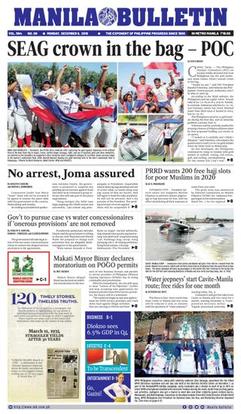
The Manila Bulletin is the Philippines' largest English language broadsheet newspaper by circulation. Founded in 1900, it is the second oldest extant newspaper published in the Philippines and the second oldest extant English newspaper in the Far East. It bills itself as "The Nation's Leading Newspaper", which is its official slogan.

The National Library of the Philippines is the Philippines' official repository of information on cultural heritage and other literary resources. It is located in Ermita neighboring culturally significant buildings such as the Museum of Philippine Political History and the National Historical Commission. Like its neighbors, it is under the jurisdiction of the National Commission for Culture and the Arts (NCCA).

Epifanio de los Santos y Cristóbal, sometimes known as Don Pañong or Don Panyong, was a noted Filipino historian, journalist, and civil servant. He was regarded as one of the best Filipino writers and a literary genius. He also entered politics, serving as a member of the Malolos Congress from 1898 to 1899 from Nueva Ecija and later as governor of Nueva Ecija from 1902 to 1906. As a lawyer, he was named as the district attorney of San Isidro, Nueva Ecija in 1900 and later as fiscal of the provinces of Bulacan and Bataan. He was named as an assistant technical director of the Philippine Census in 1918. He was appointed Director of the Philippine Library and Museum by Governor General Leonard Wood in 1925, serving until his death in 1928.

Ambeth R. Ocampo is a Filipino public historian, academic, cultural administrator, journalist, author, and independent curator. He is best known for his definitive writings about Philippines' national hero José Rizal and on topics on Philippine history and Philippine art through Looking Back, his bi-weekly editorial page column in the Philippine Daily Inquirer.
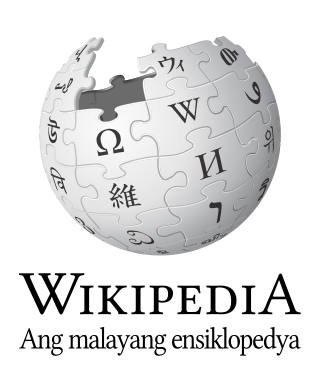
The Tagalog Wikipedia is the Tagalog language edition of Wikipedia, which was launched on December 1, 2003. It has 45,582 articles and is the 102nd largest Wikipedia according to the number of articles as of November 22, 2023.

Don Fabián de la Rosa y Cueto was a Filipino painter. He was the uncle and mentor to the Philippines' national artist in painting, Fernando Amorsolo, and to his brother Pablo. He is regarded as a "master of genre" in Philippine art.
Gaspar A. Vibal is the executive director of Vibal Foundation. As book collector, he pioneered the creation of Filipiniana.net and WikiPilipinas.org, two of the foundation's flagship projects. As a balikbayan from New York City, Gaspar is a scion of a family long-established in the Philippine book publishing and commercial printing industry. His parents are Hilarion Palomer Vibal (1908–1988) and Esther Asuncion (1923-2020). Hilarion was a writer, editor, and publisher. He is known as the co-founder of Vibal Publishing House, Inc., the Philippines' biggest publishing house. He was among the first generations of Filipino writers in English. On April 30, 1950, Hilarion met and married Esther at the time he was recruited by Ramon Roces's associate D.H. Soriano to become the business editor of Evening News. Gaspar's mother Esther, on the other hand, is a writer, publisher, businesswoman, socio-civic worker, lifetime member of the prestigious Girl Scouts of the Philippines and philanthropist. As incumbent president of Vibal Publishing House Inc. (VPHI), she is known internationally as the first Asian and Filipino world president (1983) of Inner Wheel Club, a socio-civic organization formed by wives of Rotary International. She was the founder of Philippine Women's Studies project and member of the board of trustees of UP Center for Women's Studies Foundation, Inc., a commissioner of the National Commission on the Role of Filipino Women, and was the president of the National Council of Women of the Philippines (1990).
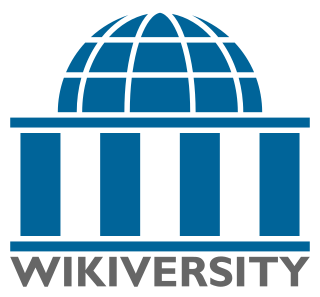
Wikiversity is a Wikimedia Foundation project that supports learning communities, their learning materials, and resulting activities. It differs from Wikipedia in that it offers tutorials and other materials for the fostering of learning, rather than an encyclopedia. It is available in many languages.
Soledad Sarmiento Reyes is a Philippine literature scholar, literary and art critic, author, anthologist, consultant, professor, instructor, editor, annotator, researcher, and essayist in the Philippines. Specializing in the field of popular culture and the arts in the Philippines, Reyes is a professor teaching interdisciplinary studies at the University of the Philippines and the Ateneo de Manila University. She is an accomplished author of books and anthologies. "sa nobela mababalatuba ang mga pangyayati sa buhay ng isang kagawad sa union

Pinaglahuan is a Tagalog-language novel written by Filipino novelist Faustino S. Aguilar. Aguilar completed the manuscript on September 25, 1906. The novel was published by Manila Filateco in Manila, Philippines in 1907. The novel was written during the American period in Philippine history (1898-1946).
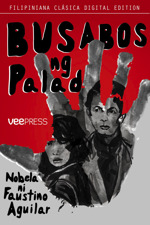
Busabos ng Palad is a Tagalog-language novel written by Filipino novelist Faustino Aguilar in 1909. Apart from tackling the "ills and injustices" in Philippine society, Busabos ng Palad revolves around love, romance, tragedy, and prostitution. The 157-page novel was published in Manila by Manila Filatelica.
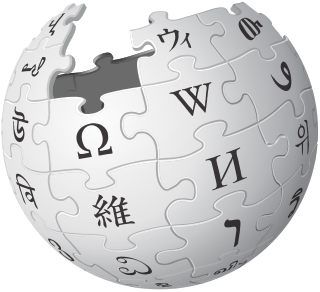
The following outline is provided as an overview of and a topical guide to Wikipedia:
Vibal Publishing House, Inc. is a major publishing house in the Philippines based in Quezon City. Vibal was founded in 1953 by Hilarion P. Vibal and by his wife, Esther Asuncion-Vibal. Vibal is a textbook, reference materials, and multimedia products publisher and is the biggest in the country. In 2011, in partnership with Procter & Gamble, Vibal introduces digital classrooms and low-cost digital education tablets, for the digitization of education in the country.

Alfredo Mahar Francisco Amante Lagmay is a Filipino geologist. He is executive director of Project NOAH and a professor at the National Institute of Geological Sciences of the University of the Philippines Diliman.
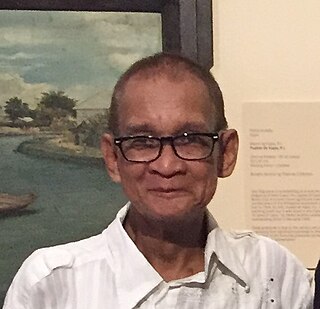
Santiago Albano Pilar more popularly known as Jak Pilar, was a Filipino art historian, curator, and author. He was best known for chronicling Philippine art centered on the 19th and the 20th century in numerous publications in both the Philippines and overseas.














